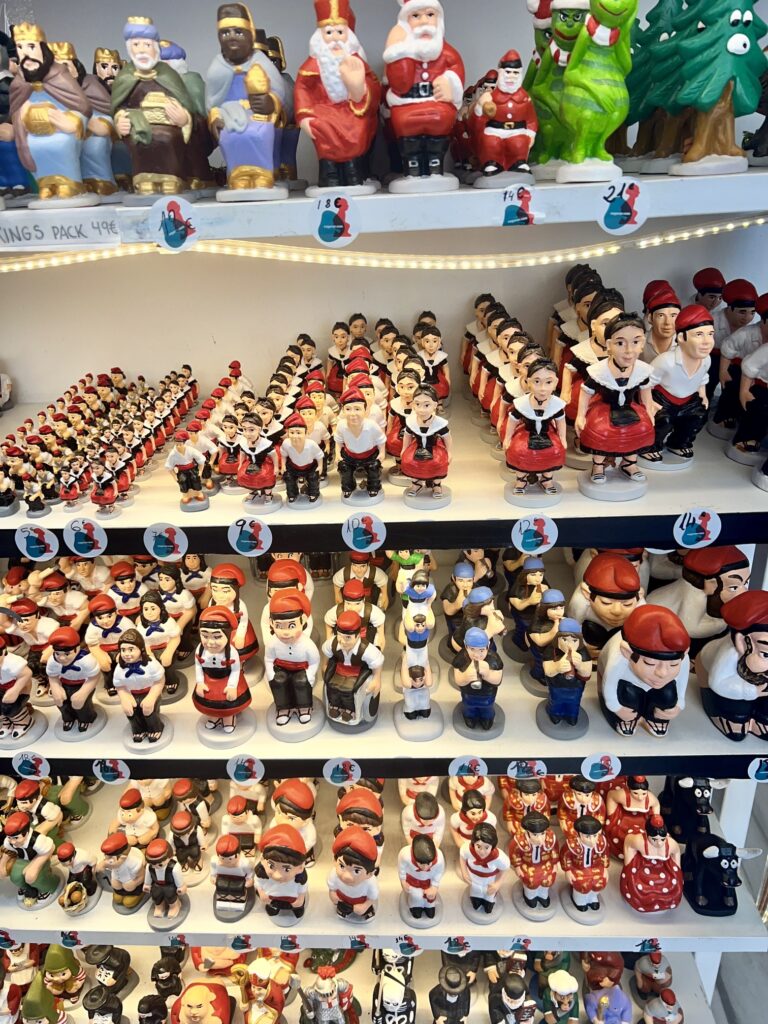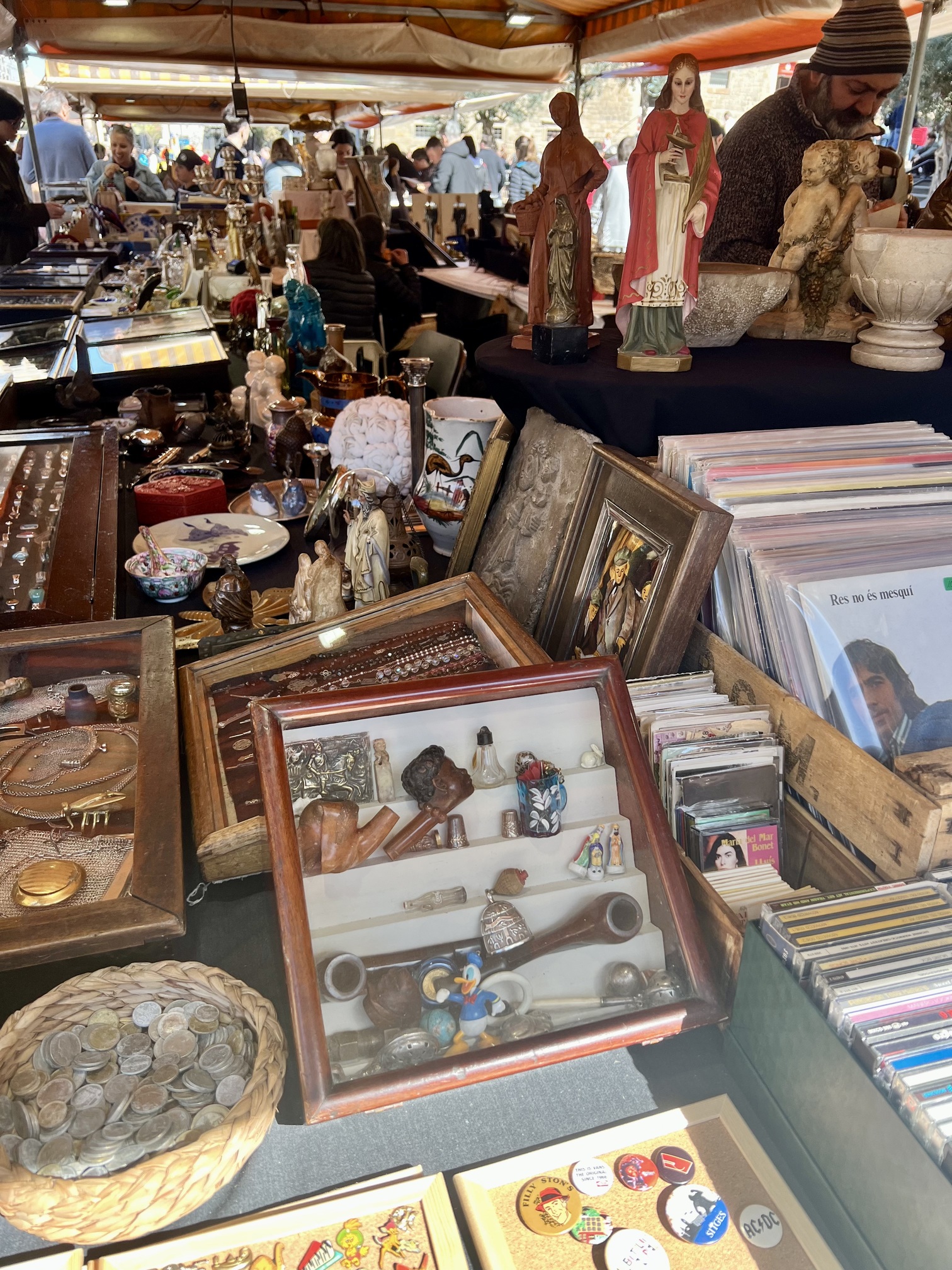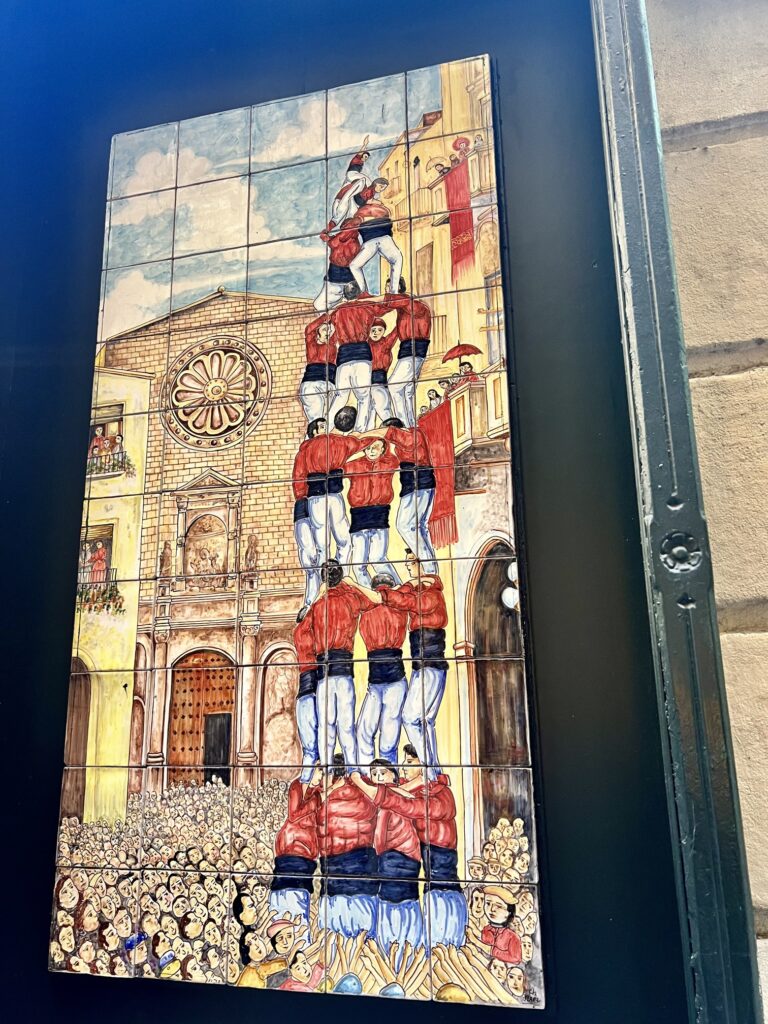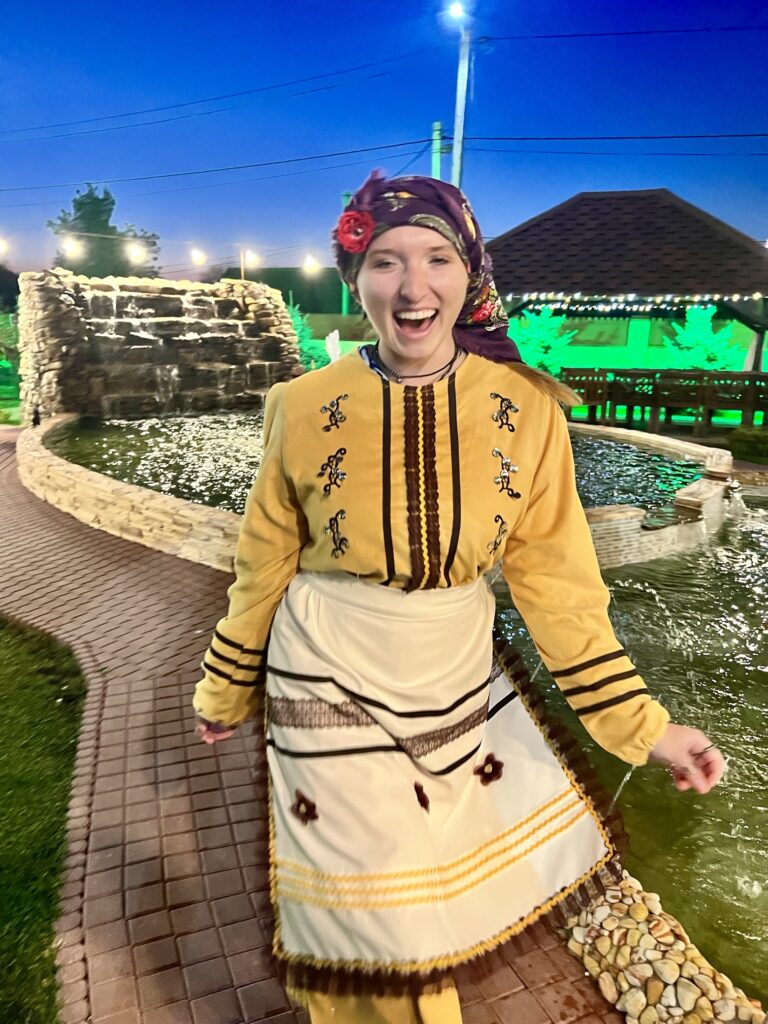
10 Authentic Spanish Souvenirs for Travelers
 September 24
September 24
 12 min read
12 min read

10 Authentic Spanish Souvenirs for Travelers-Key Highlights
- Immerse yourself in Spain’s rich culture and bring back a piece of your incredible journey with our handpicked selection of authentic Spanish souvenirs.
- From the fiery flavours of paprika and olive oil to the intricate craftsmanship of ceramics and flamenco fans, these treasures encapsulate the spirit of Spain.
- Discover unique gifts for your loved ones or treat yourself to a reminder of your unforgettable Spanish adventure.
- Our guide also provides insider tips on where to find these authentic treasures, ensuring you return home with the real deal!
- Beyond the souvenirs themselves, we’ll explore the fascinating stories behind their creation, adding another layer of appreciation to your Spanish mementos.
Introduction
Get ready to enjoy a great journey through Spain’s lively culture and traditions! Spain has more than just beautiful views and a deep history. It has many real souvenirs that will remind you of your unforgettable experience. You can smell the delicious foods of Spanish cuisine, like paella and olive oil. You can also see the detailed art of handcrafted ceramics. Plus, you can feel the rhythm of flamenco. These souvenirs are not just items; they are real memories that can be held close.
1. Artisanal Flamenco Fans: A Breeze of Spanish Culture
Artisanal flamenco fans are a true symbol of Spain. They are beautiful and can be useful as souvenirs. These fans show the passion of flamenco dancing and the rich culture of Andalusia. Imagine sitting in a lively tapas bar, listening to flamenco guitar, while you cool yourself with a beautiful hand-painted fan.
Look for fans that have intricate designs, vibrant colors, or even pictures of the Spanish flag to make them more special. You can find lovely flamenco fans in specialty shops, markets, and from street vendors. Cities like Seville, Madrid, and Granada are great places to shop for them.
2. Quality Saffron: The Golden Spice of Spain
Indulge your senses with the amazing smell and bright color of Spanish saffron. People call it “red gold” because it takes a lot of work to harvest it and it’s very valuable. Spanish saffron is loved for its special flavor and how well it works in different dishes. It is a great souvenir for anyone who enjoys food.
Picture yourself bringing the tastes of Spain into your kitchen. You can add a little bit of this special spice to your paella, stews, or even desserts. To find the best saffron, look for good spice shops or markets that sell local products. You should ask about where the saffron comes from and how it’s dried. This way, you can ensure it is authentic and tasty.
3. Hand-Painted Ceramics: A Piece of Spanish Artistry
Bring some Spanish art into your home with bright, hand-painted ceramics. Each piece shows off old traditions and careful work. You can find many styles, from decorative plates and bowls to detailed tiles and fun figurines. Each one shows the special style of different Spanish areas.
Talavera pottery is famous for its classic blue and white designs. This will make you feel like you’re in the lovely town of Toledo. The bright colors and strong patterns of Andalusian ceramics show the region’s Moorish influence. If you travel, try to find pottery workshops or studios. You can see artisans use their traditional techniques there.
4. Iberian Ham: A Taste of Spanish Culinary Excellence
No trip to Spain is complete without trying Iberian ham. This special food is a key part of Spanish cuisine. Made from acorn-fed black Iberian pigs, this ham is loved for its rich, nutty taste and soft texture.
You can enjoy it on its own, slice it thin, and pair it with crusty bread and a glass of Spanish wine. You can also add it to tapas or other dishes for a wonderful flavor. Make sure to visit local markets or special grocery stores. There, educated vendors can help you find the best ham. They can even pack your choice to take home easily.
5. Traditional Espadrilles: Footwear with Spanish Soul
Step into Spanish style and comfort with traditional espadrilles. These shoes are a classic part of Spain’s footwear, showing off its fine craftsmanship and easy-going charm. They are made from natural materials like canvas or cotton for the top and esparto grass for the bottom. Espadrilles are great for Spain’s warm weather and can add a special Mediterranean look to any outfit.
Take a walk through local markets or find shops that have a variety of styles and designs. You can choose from classic wedges or modern flats. You’re sure to find the right pair of espadrilles to enhance your wardrobe. Look for handmade details and materials from the local area for a true Spanish feel.
6. Olive Oil: Liquid Gold from the Spanish Groves
Spanish olive oil is often called “liquid gold.” It is known for its great quality, taste, and health benefits. This oil is a key ingredient in Spanish cuisine. Spain produces more olive oil than any other country. Its varied landscape and perfect climate help grow olives well.
When you bring home a bottle of Spanish olive oil, you can enjoy the true tastes of the Mediterranean in your meals. You can pick a strong extra virgin olive oil for dipping and drizzling. There are also milder types for cooking. Local markets, special grocery stores, and even olive oil farms have tastings. They help you learn about how the oil is made. This way, you can find the best bottle for your taste.

7. Turron: A Sweet Slice of Spanish Tradition
Treat your taste buds to the sweet flavor of turrón, a traditional Spanish nougat. It is often enjoyed during special times and celebrations. Turrón is made with honey, almonds, and sugar. It comes in different textures and tastes, from hard and crunchy to soft and chewy.
Try the classic almond turrón (turrón de Alicante) for a great crunch, or enjoy the smooth, melt-in-your-mouth Jijona turrón made from finely ground almonds. You can find turrón in nice boxes or sold by weight in local candy shops, markets, and grocery stores all over Spain.
8. Customizable Soccer Jerseys: For the Love of the Game
For soccer fans, getting a personalized jersey is a great way to support your favorite Spanish team. Spain has a strong football history and is known for famous clubs like Real Madrid, FC Barcelona, and Atlético Madrid.
You can visit official team stores or look for street vendors close to the stadiums. They have many choices like jerseys, scarves, and other fan items. Just think about how exciting it will be to wear your custom jersey with your name or a player’s number. It will be a great reminder of your special time in Spain.
9. Manchego Cheese: A Flavorful Spanish Delight
Manchego cheese comes from the La Mancha region of Spain. It is a tasty cheese that has a unique flavour and texture. Made from sheep’s milk, it is aged for different times. This aging creates many flavours, from mild and nutty to sharp and complex.
You can enjoy it by itself or with a glass of Spanish wine. You can also add it to your favorite tapas recipes to make them more authentic. You’ll find Manchego cheese in stores, markets, and cheese shops across Spain. It is available in various forms, like wedges or pre-sliced pieces.
10. Flamenco Guitar: The Sound of Spain
The beautiful sounds of flamenco music are closely linked to Spain. A flamenco guitar can help you remember those special moments. These guitars are famous for their unique sound and skillful design. They come in many shapes and sizes, so there’s one for every skill level.
Whether you are a skilled player or just starting, a flamenco guitar can bring back memories of amazing shows from your trips. Look for good music stores that focus on traditional Spanish instruments. The friendly staff there can help you pick the right guitar.
Delving Deeper: The Stories Behind the Souvenirs
Every souvenir has its own story. Learning about the tales behind real Spanish souvenirs can make your trip more special. Think about the traditional techniques used for making colorful pottery in Toledo. Imagine the skills involved in creating flamenco dresses in Seville that have existed for centuries. Each item shares a bit of Spanish history and culture. This includes the meaning of the Spanish flag and flavors from local dishes, like saffron-infused paella from Valencia. Discovering the stories behind these souvenirs enhances your travel through Spain’s many landscapes and traditions.
The Historical Significance of Flamenco in Spanish Culture
Flamenco is an exciting art form that shows passion, rhythm, and strong emotion. It is a key part of Spanish culture, mainly in the southern area of Andalusia. Flamenco has deep roots, connected to the history of the Romani people and Moorish influences in Spain.
Flamenco dance, music, and song have changed over time, reflecting the rich mix of cultures. It is a fascinating performance that still charms audiences all over the world. The dance features complex footwork and hand movements. The music includes soulful singing and beautiful guitar sounds. Overall, flamenco highlights the spirit and strength of the Spanish people.
Saffron Farming in Spain: A Labor of Love and Tradition
Spanish saffron has been a prized spice for hundreds of years. Its bright red threads bring color, flavor, and a special touch to dishes. Growing this “red gold” takes a lot of work. It has a long history tied to tradition and is passed down by generations of Spanish farmers, especially in the La Mancha region.
The process starts with carefully picking the saffron crocus flowers by hand. Then, the delicate parts are carefully extracted and dried. Each step is essential for making high-quality saffron. When you enjoy the special flavor and smell of Spanish saffron, remember you are tasting the hard work and respect for the land that has gone on for many years.
The Art of Ceramics: From Spanish Villages to Your Home
The art of ceramics in Spain is very old, going back thousands of years. Each area in Spain has its own style and methods, which skilled makers pass down through families. You can see this in things like the bright, hand-painted tiles in Andalusian courtyards and the detailed patterns of Talavera pottery. These ceramics show the different cultures that make up Spain.
Many pieces often show traditional themes, religious symbols, or pictures of daily life. Each one shows the talent and skill of the communities that made them. When you look at your chosen piece, remember you are holding a piece of Spanish history. It is proof of the lasting beauty of handmade craftsmanship.

Practical Tips for Souvenir Shopping in Spain
Navigating the world of Spanish souvenirs can be fun but also a bit much. There are so many unique choices. Don’t worry, we are here to help! To have a great shopping experience, here are some helpful tips. These tips will guide you to find real Spanish treasures and help you make smart choices.
Best Places to Find Authentic Spanish Souvenirs
To really dive into the world of Spanish souvenirs and find special treasures, you need to look beyond the usual tourist stores.
- Local Markets: Visit lively local markets. Here, you can talk to artisans, see a wide range of products, and even try to negotiate the best price.
- Specialty Shops: Find specialty shops that focus on certain crafts or items, like flamenco clothes, ceramics, or tasty gourmet foods.
- Neighborhood Boutiques: Explore quaint neighborhood boutiques for unique, handmade items. These often show off local styles and skills.
Be sure to ask about where the souvenirs come from and how they are made. This way, you can keep things real and help local artisans.
How to Spot Genuine Spanish Crafts and Avoid Fakes
While many sellers in Spain sell real and good-quality souvenirs, some fake products may not meet those same standards.
To make sure you buy genuine Spanish crafts, look for these signs:
- Craftsmanship: Check for any flaws or uneven details. Real handmade items usually have slight differences.
- Materials: Ask about the materials used and where they come from. Genuine Spanish crafts often use local and high-quality materials.
- Pricing: Be careful of prices that seem too low. This might mean it’s a lower-quality fake.
If you have questions, don’t be shy about asking the seller for more details or finding trusted sellers who focus on real Spanish crafts.
Conclusion
In conclusion, embracing Spanish culture by collecting real souvenirs adds fun to your trips. The lively sounds of Flamenco guitar and the tasty Manchego cheese show a part of Spain’s rich culture. Visit colorful markets and skilled shops to discover items like hand-painted ceramics and tasty saffron. These souvenirs are not just special gifts but also wonderful memories of your amazing time in Spain. So, pack your bags with these essential treasures and let the spirit of Spain be with you on your adventure. ¡Viva la aventura!
Considering a visit to Spain? Check out my Complete Travel Guide to Spain!
Frequently Asked Questions
What is the Best Way to Transport Spanish Olive Oil Safely Back Home?
To safely carry Spanish olive oil in your suitcase, pack it in leak-proof containers. You can also wrap glass bottles with bubble wrap for added safety. It’s a good idea to put them in sealed bags. This will stop any spills from getting on your other things.
Are There Any Restrictions on Bringing Iberian Ham into the United States?
Yes, you can’t bring Iberian ham into the United States. It’s usually not allowed to import cured meats from countries with animal disease outbreak, like Spain. It is a good idea to check with U.S. Customs for the latest rules before your trip.
How Can I Verify the Authenticity of a Flamenco Guitar?
To check if a flamenco guitar is real, go to a good music store that knows about Spanish instruments. Ask about where the guitar is from, who made it, and if there are any papers that come with it. Look at the quality of the work and see if there are hand-made details.
Recent Posts
Related Posts
Explore Yosemite National Park: A Nature Lover’s Paradise
Key Highlights Next, let’s dive into what makes Yosemite National Park an unmatched treasure of the United…
Local Favorites: What Food to Eat in California
Key Highlights Introduction California, also called the golden state, is a great place for people who love…
Discover the 20 Best Places to Visit in California Now
Key Highlights Introduction California is a place that has something for everyone. You can find natural beauty…




